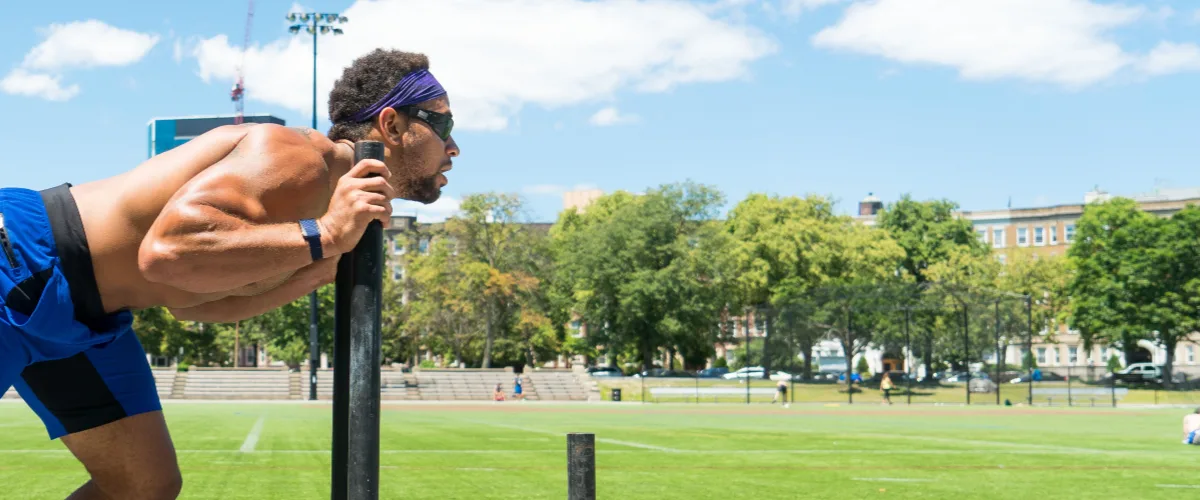Topics
- Article
#WHOOPEd Weekly Digest, Vol. 17

What happens when your body takes on stress, and how much does perception affect your healthy lifestyle? Plus, what will genetic engineering do for elite athletes?
Monday, August 28
What happens to your body when you’re stressed
https://theconversation.com/what-happens-to-your-body-when-youre-stressed-81789
Small amounts of stress can be beneficial to keep us alert and focussed. But when stress becomes too great or lasts too long, here’s what is affected:
- Harder and faster breathing strains the respiratory system.
- Cortisol released hinders the immune system and leaves the body more open to illness and infection.
- Muscles tense up, which can eventually lead to chronic pain and headaches.
- Heart rate and blood pressure rise, which over time can damage the arteries and blood vessels.
- The liver produces more blood sugar, which for some increases the risk of diabetes.
- Stress can cause a variety of uncomfortable gastrointestinal issues.
- Hyperarousal from stress makes it difficult to sleep, which impairs brain function and can cause a variety of health problems.
Tuesday, August 29
Are Your Wellbeing Approaches Backfiring?
- A study from Stanford assistant professor of psychology Dr. Alia Crum gave two groups of participants identical milkshakes, but one was labeled “Indulgence: Decadence You Deserve, 620 calories, 30 grams of fat,” and the other “Sensi-Shake: Guilt Free Satisfaction, 140 calories 0 grams of fat.”
- The participants who drank the supposed “healthy” shake reported feeling less full and levels of ghrelin (the “hunger hormone”) in their blood decreased much less than those who thought they were indulging.
- A similar study from Dr. Alia found that changing menu descriptions of healthy dishes to appear more indulging made people more likely to order them, as well as feel more satisfied after eating them.
- A third study showed how the same mentality can apply to physical fitness: Hotel housekeeping staff members who were told their work qualified as sufficient daily exercise lost more weight, had lower blood pressure, and reported liking their job more than those were not given that information.
Wednesday, August 30
Chronic Lack of Sleep Increases Risk-Seeking
http://www.media.uzh.ch/en/Press-Releases/2017/Lack-of-sleep-increases-risk-seeking.html
- University of Zurich researchers studied the behavior of 14 male students, ages 18-28.
- Twice per day the students were paid out sums of money in a manner equivalent to gambling–they could play it safe and take a guaranteed small amount, or go for more with the risk of getting nothing.
- Students who slept 5 hours per night for a week were much more likely to make the riskier decisions than those who averaged 8 hours of sleep.
- Only one night of poor sleep didn’t affect their choice behavior, but the levels of risk taking increased when they became more sleep deprived.
- The students also did not show awareness of their increased risk taking.
Thursday, August 31
Inside the Premier League’s Sports Science: Ice Baths & Cryotherapy
- England’s former manager Sam Allardyce: “English football might be the richest around, but its concurrent status as the most physically demanding in European football risks the physical well-being of its participants.”
- The BBC suggested cryotherapy played a key role in Leicester City’s improbable championship last year.
- Per researchers in the physiology department at the Australian Institute of Sport: “The ice bath will cause constriction of blood vessels. This has been suggested as a mechanism that helps with the flushing of waste products, such as lactic acid, out of the affected tissue.”
- The European Journal of Applied Physiology and Occupational Physiology also found that ice baths increase the proportions of lymphocytes, cell that fight infection. In turn, this can help athletes stay healthy over the course of a long, grueling season.
Friday, September 1
We Are Nowhere Close to the Limits of Athletic Performance
http://nautil.us/issue/51/limits/we-are-nowhere-close-to-the-limits-of-athletic-performance-rp
- Elite athletes are genetic outliers, the product of the right random combinations of tens-of-thousands of variants.
- “No living human has anywhere near all of the possible positive versions of the relevant genetic variants. … It is highly unlikely that we have come anywhere close to maximum performance among all the 100 billion humans who have ever lived.”
- Genomics researcher George Church helped develop a gene editing tool, known as CRISPR, that has been approved for medical trials. “Designing” humans may not be that far off.
Similar to the genetic engineering of fruits and vegetables and the way we’ve bred animals, the same will eventually apply to humans.